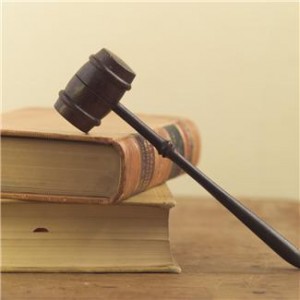From the NCPH/OAH conference: Historians in the legal arena
04 June 2012 – Adina Langer
As a fledgling public history consultant and member of the NCPH Consultants’ Committee, I endeavored to attend as many sessions as I could that highlighted non-traditional areas in which historians have successfully contributed. The Historians in the Legal Arena session was, by far, one of the most compelling.
Entitled “A Different Kind of History: Historians in the Legal Arena,” the panel was chaired by Alan Newell of HIstorical Research Associates, Inc, and included Michael Adamson, CSU, of Sacramento, CA, Emily Greenwald of Historical Research Associates, and Douglas Littlefield of Littlefield Historical Research.
The panelists’ experiences in the legal arena ranged from “history detective” work to expert witness testimony. From their questions and participation in the discussion, it was clear that many members of the audience also had experience in the area, although some, like me, were there mostly to “soak it up.”
Michael Adamson offers his impressions of being a part of the panel:
I thought that the panel went well, and met the goals laid out for it. Alan Newell had circulated half a dozen questions to Doug, Emily, and me ahead of time, both to get us thinking and for him to use to keep the conversation going, should it appear to stall. We didn’t get through all of them, which reflects on the interest of the audience in the topic and the robustness of the discussion.
From the introductions, it was clear that the panelists, including Alan Newell, had a variety of experiences in the legal arena, which can be divided into the historical “detective” work (that has comprised all of my experience) and expert witness testimony. (Are there other ways for historians to participate in the legal arena?) Unsurprisingly, audience interest and subsequently the conversation was weighted toward the latter. In this regard, Doug explained his experiences at the technical level of detail that met the audience’s interest to learn what acting as a expert is all about. (Not to discount in the least the superb comments of Emily and Alan on serving as an expert witness! As the only one who could not add anything to the discussion in this area, I can say that I learned a lot from everyone on the topic.)I think both the participants and the panelists learned from the discussion and left the room knowing that there generally is work for historians in this area, and that they can typically do this kind of work without tarnishing their reputations–at least if they are not in the academy.
There, were, however, some interesting ethical questions raised in the discussion section. A Canadian historian mentioned that, in Canada, many historians are reticent to enter the legal arena as expert witnesses, because there is a sense that they are taking the “side” of the prosecution or the defense, as opposed to the “side” of the historical evidence itself. My hope and understanding is that professional ethics should trump any other form of influence in this area. It may sound old fashioned, but I’d like to believe that as historians, we are beholden to the “truth” found in the historical evidence, not the desired argument of one side or the other.
Of course, if history does not bolster the argument of the legal team employing the historian, that research may not be submitted as evidence, and the historian must keep the work that he or she did on behalf of the legal team confidential for a certain period of time, unless he or she is called as a witness in the case. The question of who can or cannot be called as a witness remains fuzzy for me even after attending the panel, so I would be interested to see comments from others who attended or who have more expertise on the subject.
I’ll close with Michael Adamson’s thoughts on the issue of professional ethics:
I also found intriguing how “taking sides” in a dispute renders one unable to assist the “other” side in future litigation. The extent to which one can rise above the fray, as it were, as a professional historian obviously has its limits!
~ Adina Langer





1 comment